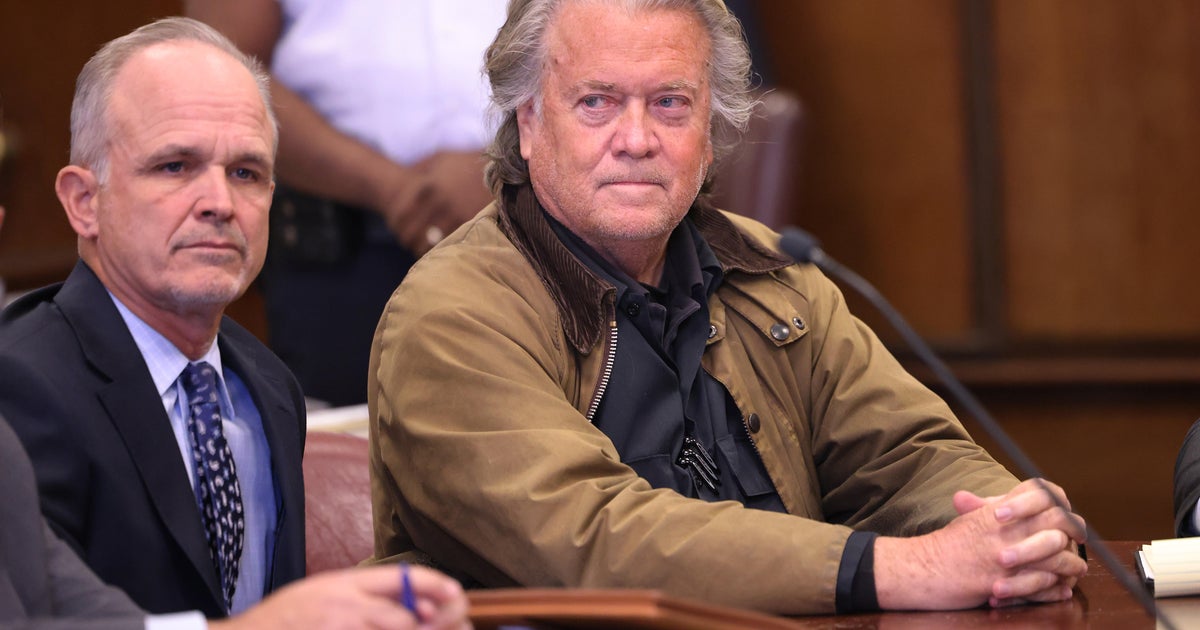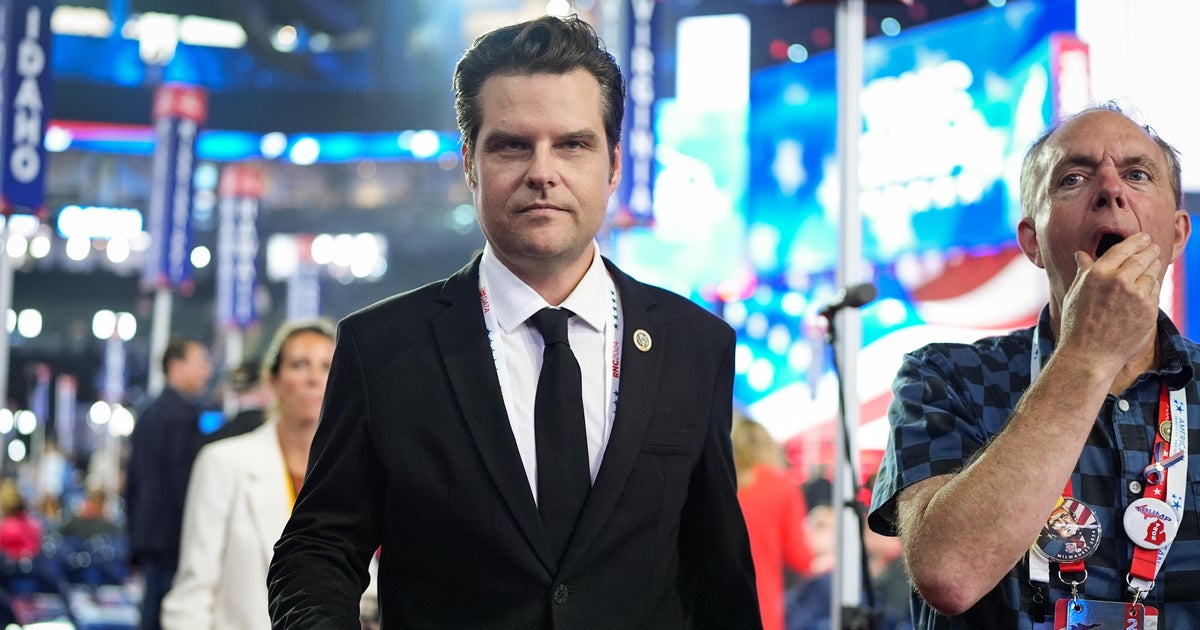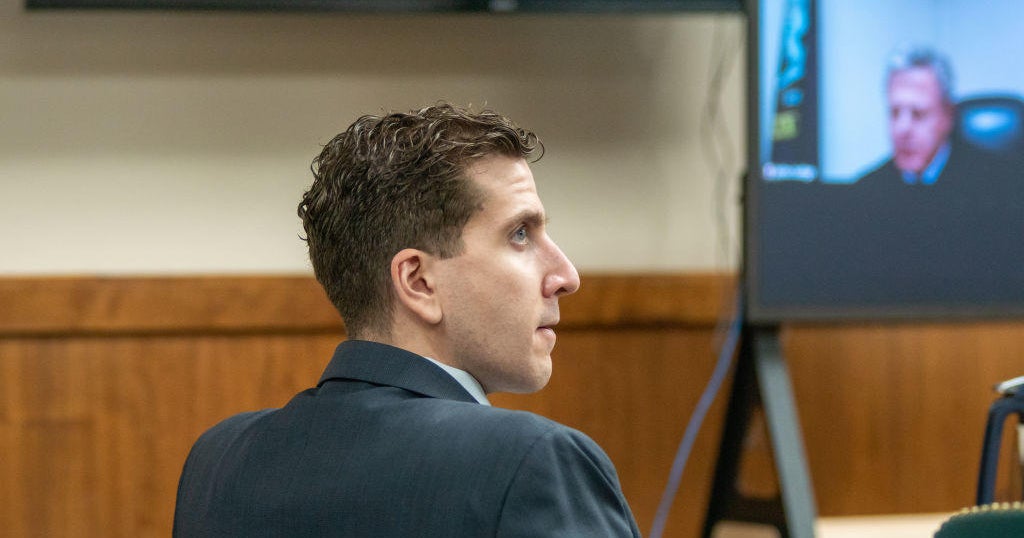Judge rules for Georgia election workers in defamation suit against Rudy Giuliani over 2020 election falsehoods
Washington — A federal judge on Wednesday sided with two former election workers from Georgia who filed a lawsuit against Rudy Giuliani alleging he defamed them by falsely claiming they engaged in an election-fraud scheme during the 2020 presidential election.
U.S. District Judge Beryl Howell, who sits on the federal district court in Washington, D.C., awarded default judgment against Giuliani holding him liable on several claims, including defamation, brought by Ruby Freeman and Wandrea ArShaye "Shaye" Moss, who are mother and daughter, respectively. The two served as election workers in Fulton County, Georgia, in the last presidential election and assisted with the vote-counting process at Atlanta's State Farm Arena.
Howell also ordered Giuliani, the former mayor of New York City who served as an outside lawyer to former President Donald Trump, to reimburse Freeman and Moss more than $89,000 in attorneys' fees and costs related to a request that the court force Giuliani to fulfill his discovery obligations. Giuliani also must ensure his eponymous businesses cover more than $43,000 in attorneys' fees associated with an effort to force them to respond to requests for documents and depositions, the judge said.
"Rather than simply play by the rules designed to promote a discovery process necessary to reach a fair decision on the merits of plaintiffs' claims, Giuliani has bemoaned plaintiffs' efforts to secure his compliance as 'punishment by process,'" Howell wrote in a 57-page opinion. "Donning a cloak of victimization may play well on a public stage to certain audiences, but in a court of law this performance has served only to subvert the normal process of discovery in a straight-forward defamation case, with the concomitant necessity of repeated court intervention."
The two sides must propose three dates between November and February for a trial to determine the amount of damages, if any, Giuliani owes to Freeman and Moss as a result of his defamation and intentional infliction of emotional distress, according to the order. Howell wrote that as a sanction for Giuliani's failure to reimburse the $89,000 in attorneys' fees by July 25, the jury may be instructed to "infer that he is intentionally trying to hide relevant discovery about his financial assets for the purpose of artificially deflating his net worth" when determining the amount to award Freeman and Moss.
Howell noted in her opinion that, aside from 193 documents initially produced by Giuliani, the result of efforts to obtain material during the discovery process was "largely a single page of communications, blobs of indecipherable data, a sliver of the financial documents required to be produced, and a declaration and two stipulations from Giuliani."
She criticized the two stipulations from Giuliani as holding "more holes than Swiss cheese," and said they "make clear his goal" of bypassing the discovery process and a merits trial, where his defenses would be scrutinized and tested.
"Yet, just as taking shortcuts to win an election carries risks — even potential criminal liability — bypassing the discovery process carries serious sanctions, no matter what reservations a noncompliant party may try artificially to preserve for appeal," Howell wrote.
Ted Goodman, a political adviser to Giuliani, denounced the opinion from Howell and said it should be reversed. He claimed the electronic evidence Giuliani is accused of not preserving was seized and held by the FBI.
"This 57 page opinion on discovery — which would usually be no more than two or three pages — is a prime example of the weaponization of our justice system, where the process is the punishment," Goodman said in a statement.
The decision from Howell is the culmination of a months-long back-and-forth over Giuliani's discovery obligations in the suit brought by Freeman and Moss. The two asked Howell in July to impose sanctions on Giuliani for failing to preserve electronic evidence from his email, messaging and social media accounts, and electronic devices.
Giuliani asked the court to deny their request that he be punished and conceded that he made false statements when he claimed Freeman and Moss engaged in voter fraud during the election.
The two women filed their defamation lawsuit in December 2021, alleging Giuliani mounted a sustained smear campaign against them by repeatedly accusing them of committing voter fraud to change the outcome of the 2020 election in Georgia.
The mother and daughter were thrust into the spotlight after they were shown in security camera footage from Atlanta's State Farm Arena processing ballots. Giuliani and the Trump campaign shared an excerpt from the video and falsely claimed Freeman and Moss were engaging in a fake-ballot scheme. Giuliani also claimed without evidence the two were passing around USB ports "as if they were vials of heroin or cocaine."
While Georgia election officials refuted the baseless claims spread by Trump's allies, Freeman and Moss were subjected to violent and racist threats and harassment. An indictment returned by a grand jury in Fulton County this month charging Giuliani, Trump and 17 others for their alleged roles in a scheme to overturn the election results in Georgia detailed how allies of Trump went to Freeman's house in early January 2021 and allegedly attempted to influence her testimony in an official proceeding about the events at the State Farm Arena on Election Day in 2020.
Giuliani attempted to dismiss the lawsuit from Freeman and Moss, but Howell denied the request in October and accused the former mayor of pushing a false narrative that the election was stolen.
He has denied any wrongdoing in the Georgia case.



